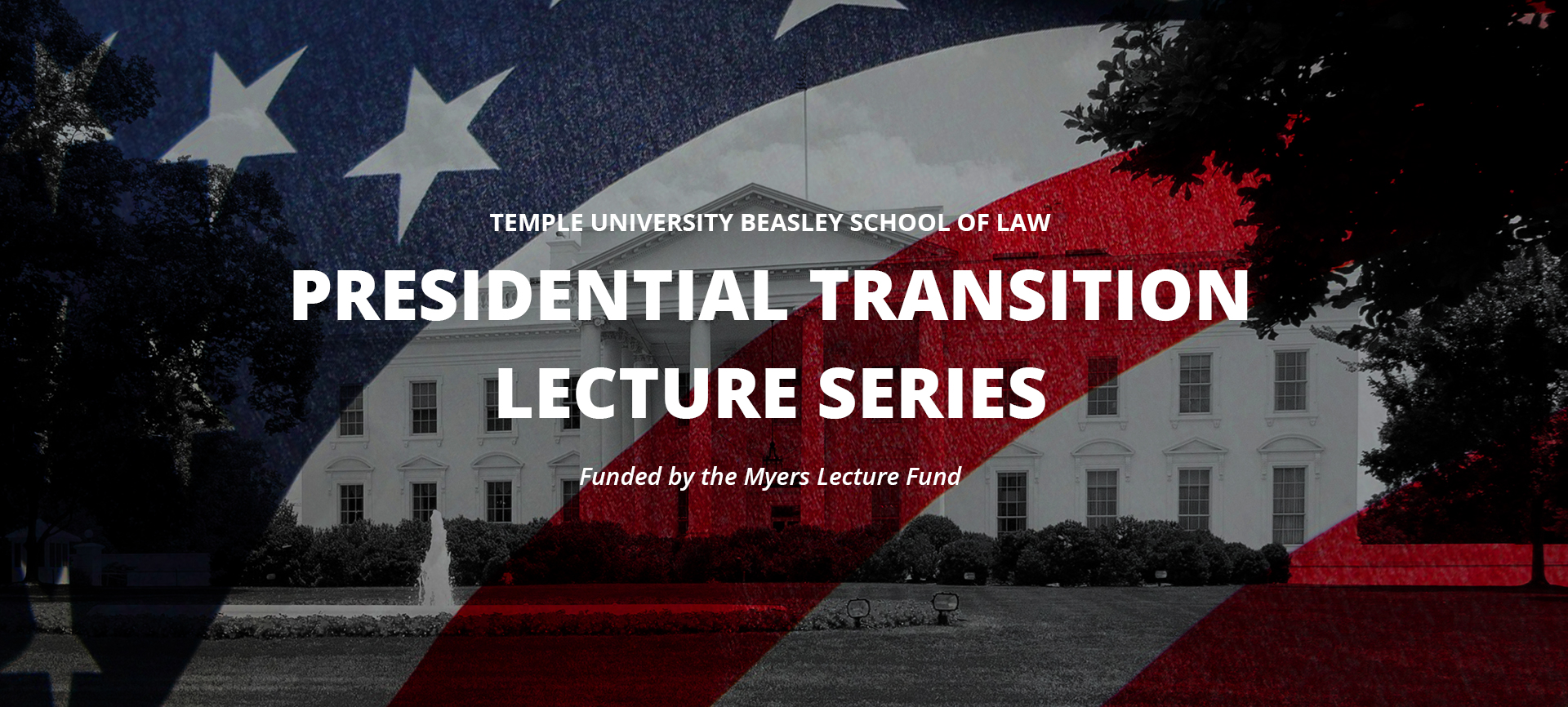Law students can’t resist a free lunch, especially one that’s accompanied by an interesting speaker. The final event in the Presidential Transition Lecture Series, featuring Professor Laura Little’s interview of EEOC Commissioner Chai Feldblum, promised both sandwiches and compelling conversation. Chai Feldblum became an EEOC Commissioner in April of 2010, a position she will retain until her term ends in July of 2018. During her tenure at the EEOC, she has focused on employment civil rights issues, including sexual orientation and transgender discrimination, pregnancy accommodation, and employment of people with disabilities. In short, she’s kind of a big deal.
Commissioner Feldblum began the talk by laying out the processes and functions of the EEOC. She explained that the EEOC is a five-person, bipartisan agency whose members are appointed by the president and approved by Congress. I was heartened to learn that EEOC decisions are arrived at through a majority vote, rendering them more insulated from turnover than other agency guidance. While some agency action is revocable by the Cabinet Secretary—for instance, the Department of Education’s guidance instructing schools to grant transgender students access to facilities consistent with their gender identity—a multimember Commission requires a new vote before any policy change goes through. At a time when our government is seriously unpredictable, it was reassuring to learn that the new administration could not wave a magic wand and immediately reverse all signs of progress.
Professor Little brought up Chevron deference, the most high-profile administrative law doctrine. Under Chevron, a court will uphold a federal agency’s construction of a statute so long as the law is ambiguous and the interpretation reasonable. I waited for the discussion to take a wonky turn; as someone who is currently taking an administrative law class, I am all too aware that the technical details can get pretty esoteric pretty fast. Instead of veering into the weeds, though, Commissioner Feldblum got back to the basics. Agencies implement laws, which means that agency action cannot extend beyond the scope of the statute. Chevron deference is not some standalone concept; agency interpretations are respected precisely because they stay within the law.
As Commissioner Feldblum described her approach—a frank examination of what the statute really means—I was struck by her sincerity. Earlier that day, I had referred to the current Commission as an “activist EEOC.” After all, the last few years have brought EEOC decisions that expanded Title VII of the Civil Rights Act of 1964 in significant ways. In 2012, the EEOC held that Title VII’s prohibition on sex-based discrimination included gender identity discrimination, thereby protecting transgender employees. In 2015, it held that sexual orientation was similarly covered. While I had celebrated these decisions when they came out, I also assumed they were the result of left-wing engineering.
But Commissioner Feldblum didn’t sound like some liberal instrumentalist. She sounded like a progressive, sure, but a progressive who was firmly tethered to the text of the statute. An employer who targets a transgender employee because of the latter’s gender identity is discriminating on the basis on sex. Drawing that conclusion is hardly a stretch—to the contrary, it is the most natural reading of the text. Even though Title VII was not enacted with the intention of protecting LGBT individuals, the words of the statute point clearly to the EEOC’s interpretation. A textualist approach that leads to a progressive outcome? I can get on board with that.
Before the talk came to a close, Commissioner Feldblum shared some of her personal philosophy. She is an optimist, she told us, and that positive outlook is what enables her to continue doing her job. I have my own streak of idealism—for some reason I cannot shake my belief that people are fundamentally good—and I found Commissioner Feldblum’s perspective to be inspiring. More than once, I have wondered whether I will manage to find my niche in the legal profession. How can I do worthwhile work without becoming jaded or overwhelmed by the state of the world? If Chai Feldblum is any indication, embracing integrity and optimism is a pretty good start.


